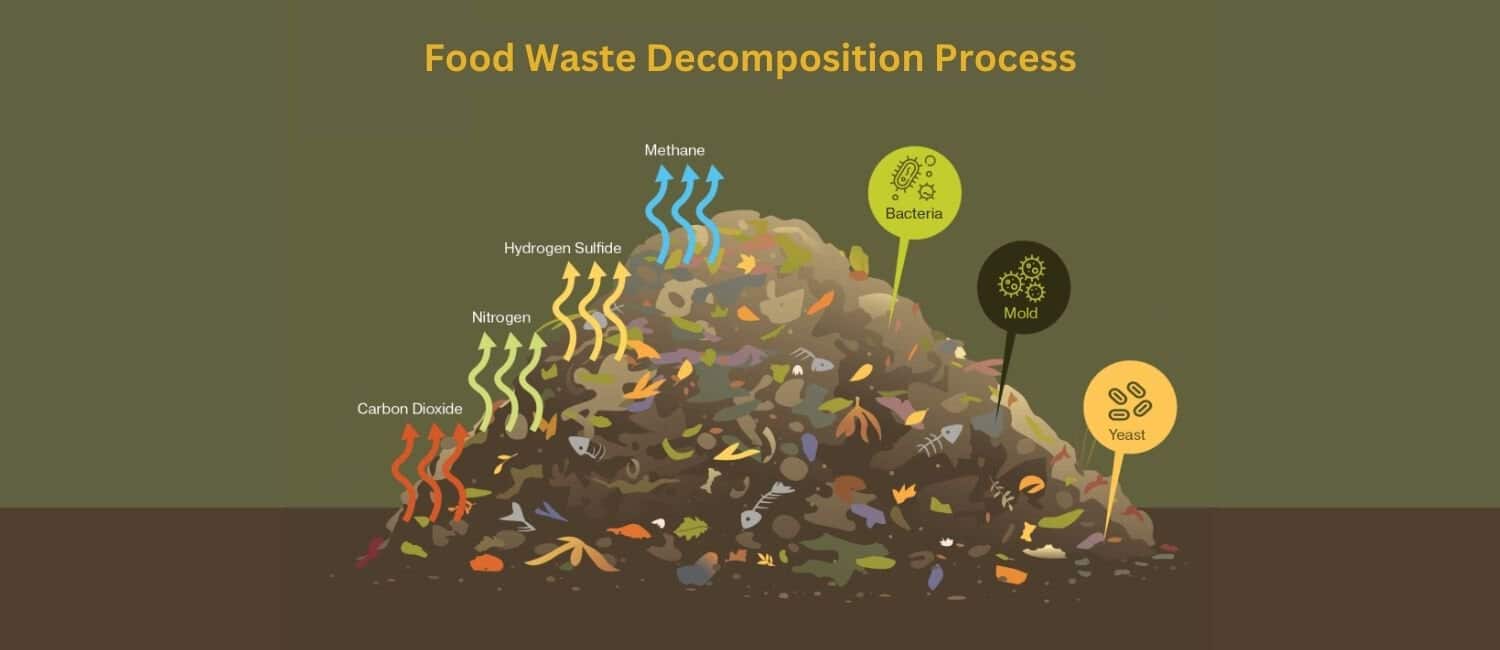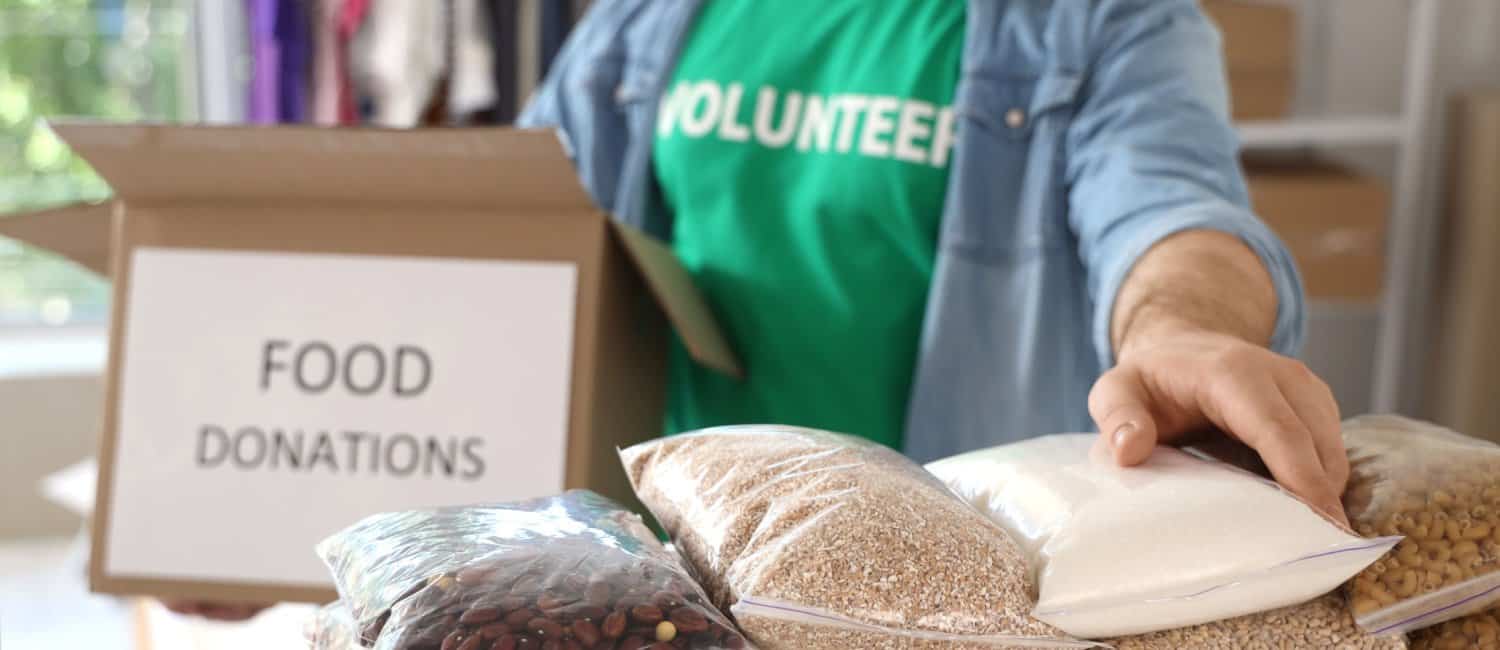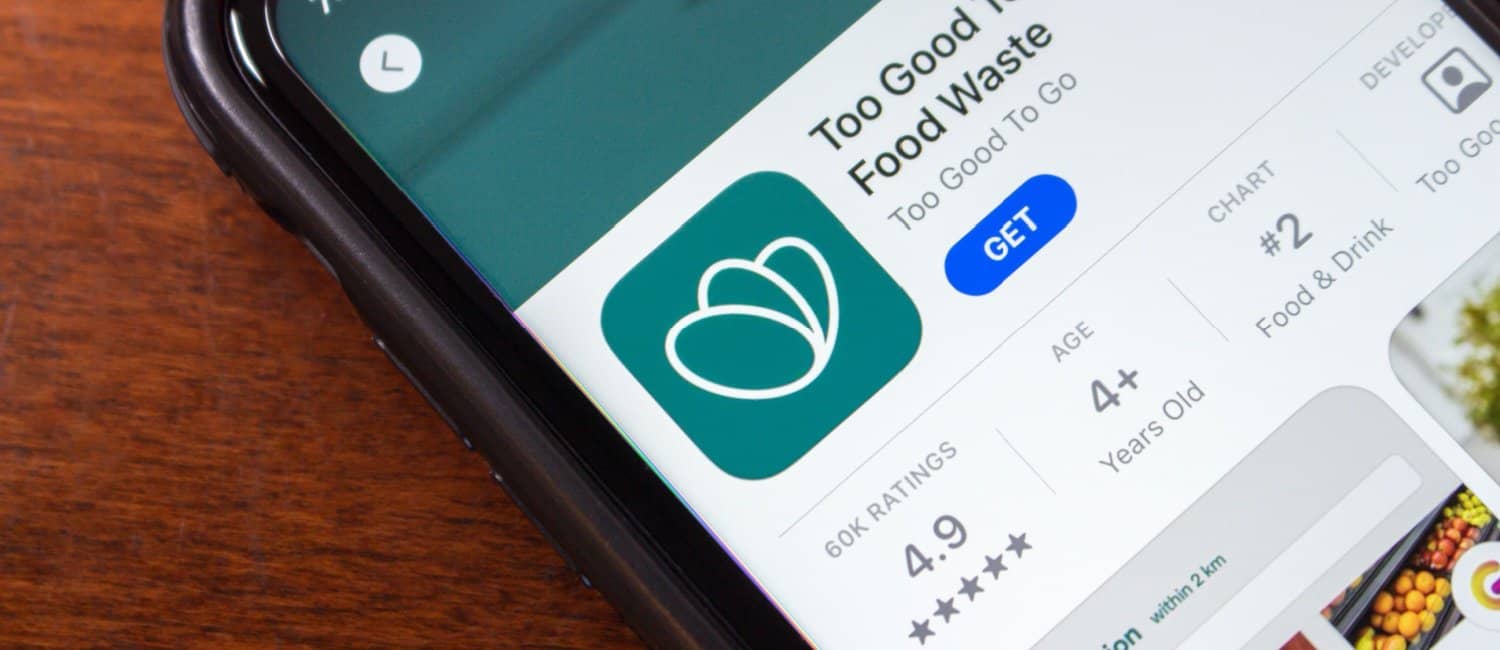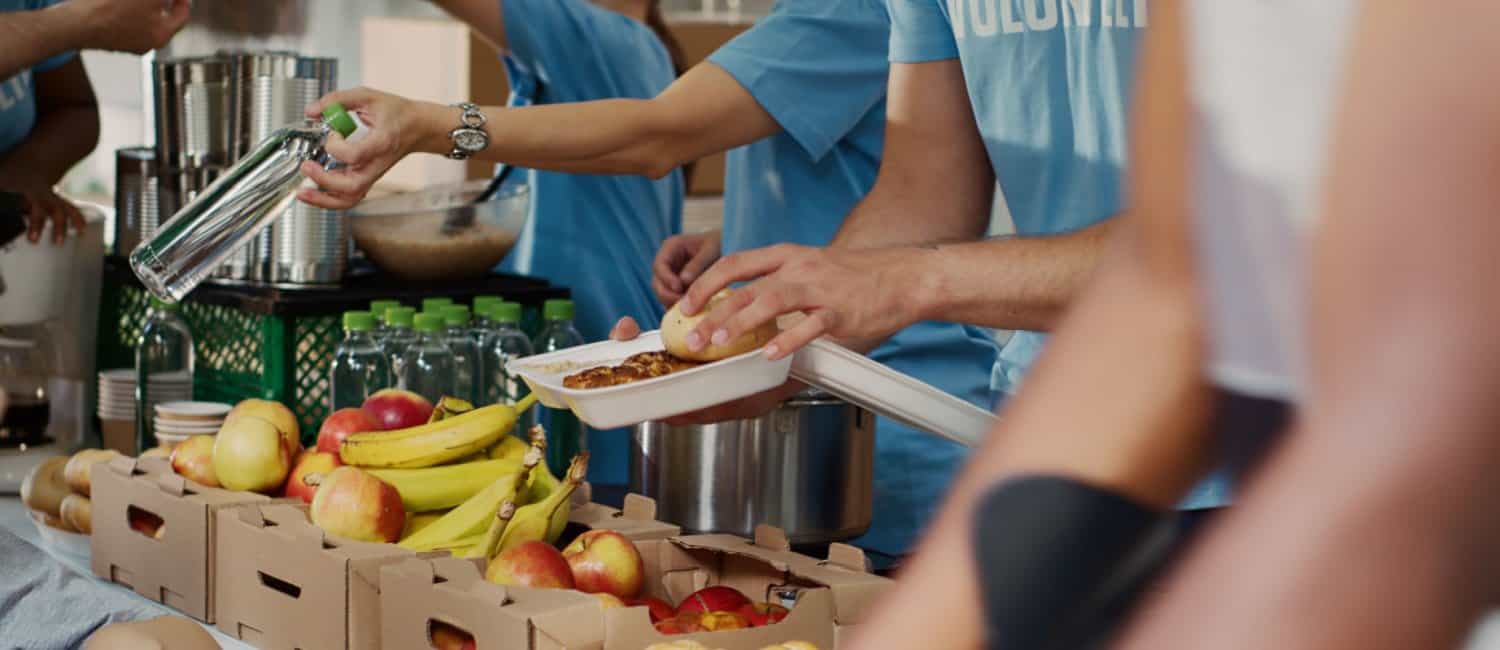Globally, we waste around a third of our food every year—that’s 2.1 million tonnes a day.
We lose much of it during farming and in transit from supplier to store, often due to poor harvesting, insufficient storage, and quality standards.
In the UK, the majority (70%) comes from households and around 14% from hospitality, food services, and retail businesses. Sadly, most of the food we throw away is perfectly fine to eat.
The UK also produces the most food waste in Europe. The average Brit bins around 140 meals annually, and our retail sector generates roughly 270,000 tonnes of annual food waste. As a nation, we contribute approximately 25 million tonnes of greenhouse gases (GHG) annually.
The world is desperate for change. At Rapid Formations, we’re incredibly passionate about environmental matters. As an SME ourselves, we’re here to share our insights and top tips on how small businesses can do their bit and reduce food waste in and out of the workplace.
Run a food waste audit
First, evaluate how much food waste your company generates. This will help you understand the biggest problem areas, and highlighting them will make it easier to implement change.
For example, if you give your employees a free lunch, you could be overordering. Calculate exactly how many people you need to provide for and adjust your order accordingly.
Alternatively, consider opting for sharing platters over individual portions, as this can help reduce food waste.
Another problem could be people leaving their leftovers in the fridge for too long, causing food to decay and end up in the bin. If that’s the case, issue a notice advising staff to remove their items from the office before they leave for the day. Of course, encourage them to eat or repurpose leftovers rather than throwing them away.
This waste audit guide can help you get started. Follow the steps to collect, sort, and measure your food waste and analyse your results to determine the specific practices in your business that need attention.
Recycle excess food
When we throw our leftovers in the general waste bin, all that food ends up in landfills, further adding to the enormous food waste crisis the world is already experiencing. But we can recycle food, and that’s one of the most effective ways small businesses can help fight food waste.
Your recycling measures will depend on your local council. Not all areas offer food recycling, and the rules vary between boroughs. So, first, check your recycling facilities with your local authority.
If a food recycling scheme operates in your area, you should have a dedicated food waste bin in the workplace and a regular collection schedule. Recycling allows food to turn into compost rather than piling up in landfills, where decomposing can take months – even years.
Did you know that a simple banana peel can take up to two years to break down? But that’s not the only concern.

Source: Power Knot
When we send food waste to landfills, it produces numerous harmful chemicals, such as carbon dioxide (CO2) and nitrogen. It also produces methane, which contributes to global warming around 80 times more than CO2 over 20 years, the United Nations Environment Programme reveals. That’s why managing our food waste responsibly and recycling as much of it as possible is crucial.
If you don’t work in an office, don’t worry. You can still recycle food waste at home and encourage your staff to do the same.
Arrange commercial food waste collection
If food recycling isn’t available in your area, consider partnering with a private waste management provider like First Mile or Countrystyle Recycling. They provide all the bags and bins your business needs and arrange a suitable collection schedule.
Rather than allowing our environment to absorb the harmful gases released during decomposition, these providers use anaerobic digestion, which converts waste into renewable energy.
Businesses will soon be legally obligated to recycle food waste
Recycling commercial food waste is good practice and will soon be a legal requirement in England.
From 31 March 2025, new legislation in the Environment Act 2021 will mandate that all businesses with 10 employees or more (or those producing over 5kg of food waste per week) separate their food waste from dry recycling and arrange collection by a licensed waste carrier (like the ones we suggested above).
Qualifying businesses will also need to separate glass, metal, plastic, paper, and carton products to prevent contamination and ensure appropriate recycling of all materials.
In preparation for these new laws, it’s helpful to start implementing these positive habits now if you don’t already.
Repurpose food
The chart below shows the food groups we discard the most in the UK, based on research by the Waste and Resource Action Programme (WRAP).
Nearly 30% of our food waste comes from vegetables and salad. The second-biggest culprit is unfinished meals (homemade and pre-prepared), followed by bread and dairy (11% and 10% respectively).
How can your business combat this issue? Encourage your team to repurpose anything they don’t eat.
Much of the food we throw away is perfectly edible, such as cauliflower leaves, which make an excellent addition to soup bases, and broccoli stalks, which are great for roasting or adding to your favourite smoothie. Plenty of fruit and vegetables (like lettuce, pineapple, and herbs) can also be replanted to create fresh produce.
Are you thinking of throwing that potato peel away? Why not air fry it and make potato skin crisps? Didn’t finish that loaf of bread, and it’s gone stale? Blitz it in a food processor to make breadcrumbs.
Some foods don’t even require peeling, yet we do it anyway and throw away the peel, along with valuable vitamins and nutrients. Carrots, cucumbers, and kiwis are just a few examples.
Leave the skin on your fruit and veg to minimise food waste. Remember to wash them thoroughly first to remove any pesticides lingering from production.
Other food uses
Repurposing doesn’t have to mean finding another way to eat your leftovers. There are many other ways to use them, such as for household cleaning. For example, banana peels are great for polishing silverware, and lemon rinds are excellent limescale removers when combined with boiling water.
Motivating your employees to reduce food waste doesn’t take much. Try sharing useful tips or speedy recipes in a company-wide email or staff newsletter. All it takes is a quick Google search to find fun and practical ideas for repurposing excess food.
Donate unwanted food
Despite the enormous amount of food waste daily, millions suffer from food poverty and malnutrition. Donating surplus food is a great way to reduce food waste and help those in need.
The easiest way to donate is through local food banks. You can donate cereal, tinned and jarred foods, pasta, rice, and more. If you have any of these items in the office that people aren’t getting through, you can avoid throwing expired products away by donating them to your local community.

It’s also a good idea to ask employees to donate unused food items at home. Also, don’t forget that most mainstream supermarkets have food donation stations, which may be more convenient.
Another way to donate excess food is through dedicated partners and charities. The Felix Project, for example, runs a corporate support programme through which businesses can supply their surplus food to the community on an ongoing basis.
Running a food business? Join a surplus food marketplace
If you run a food business, you likely have food waste, harming the environment and your business profits. WRAP estimates that around 12% of the UK’s food waste comes from hospitality, food services, and retail. Combined with household, farm and manufacturing waste, the UK wastes pours around £17 billion a year down the drain.
Save our planet and your profits by putting unsold stock to good use. Too Good to Go, a business-to-consumer (B2C) marketplace for surplus food, is one company on a mission to help businesses reduce food waste.

Local food businesses in the UK and beyond can sign up and sell their excess food stock in surprise bags for a reduced price. Simply sign up, specify which type of food you sell, and set up your surprise bag information: what type of items customers typically expect, how much a surprise bag costs, and when customers can collect their order.
And that’s it. Anything you don’t sell before the use-by date can still end up in good hands rather than in the bin, saving 2.7kg of CO2 emissions with every surprise bag. You can also easily track your earnings and receive payment directly through the app.
Buy imperfect produce
Another great way to tackle food waste is to buy imperfect produce. Also known as ‘ugly’ or ‘wonky’, these items are considered unattractive to sell in mainstream supermarkets.
For example, it might be an apple that’s the wrong shade of red or a misshapen carrot. Despite their physical flaws, these foods are no different to their ‘perfect’ counterparts.

As the food waste reduction movement grows, more entrepreneurs are on a mission to embrace wonky fruit and veg, and you could be one of them. Some have launched businesses to get more imperfect produce into people’s hands (e.g. Oddbox), and even supermarkets (like Lidl and Morrisons) now have their own wonky product lines.
If you operate in the food industry, ask your suppliers for imperfect items or switch to a supplier that offers them. Even if you provide your team fresh fruit in the office, choose wonky fruit. Look into a regular Oddbox delivery or visit your local supermarket to see if you can pick up a box of imperfect produce.
Get your employees on board
We’ve explored practical ways to reduce food waste, but to see long-term results, it’s equally crucial that everyone in the organisation is on board and does their bit. Start with clear and regular communication. Issue internal newsletters, notices, and reminders around the workplace about food waste reduction.
If it’s not already, add sustainability to the company handbook, explaining why it’s essential to the business and how every team member can help towards this good cause. This will also make it easier to onboard new employees and help them understand your company values.
Remember that some people will be more passionate than others about getting involved, so you could issue incentives. For example, set realistic targets (like recycling five food items weekly) and reward those who achieve them.
 Another vital element is ongoing training. If you have an office or operations manager, they should undergo regular training in commercial recycling and implement necessary measures around the workplace that help reduce food waste.
Another vital element is ongoing training. If you have an office or operations manager, they should undergo regular training in commercial recycling and implement necessary measures around the workplace that help reduce food waste.
For instance, clearly label recycling stations or display helpful infographics that help employees understand how to recycle food correctly.
Finally, getting employees physically involved in tackling food waste is a good idea. Consider arranging volunteering days, workshops, and classes to educate them on the importance of reducing food waste, how to repurpose it, and even how to grow their own produce at home.
Final thoughts
The world is facing a food waste crisis. By throwing too much food away, our money is going to waste, our planet is suffering, and millions are living in poverty.
However, from recycling leftovers to making more conscious shopping choices, there are numerous ways that businesses and individuals can make a considerable difference.
Reducing food waste is an ongoing process, so set targets and monitor your progress to maximise your impact. And remember to celebrate and reward achievements along the way.
Thanks for reading. We hope you found this article insightful and feel empowered to tackle food waste in your business. If you have any questions, please leave them in the comments below, and we’ll reply.
Please note that the information provided in this article is for general informational purposes only and does not constitute legal, tax, or professional advice. While our aim is that the content is accurate and up to date, it should not be relied upon as a substitute for tailored advice from qualified professionals. We strongly recommend that you seek independent legal and tax advice specific to your circumstances before acting on any information contained in this article. We accept no responsibility or liability for any loss or damage that may result from your reliance on the information provided in this article. Use of the information contained in this article is entirely at your own risk.










Excellent article! These food wastage reduction tips will be helpful for my own tax planning UK business.
Thank you for your comment, David. We’re happy you have found these food wastage reduction tips useful.
Kind regards,
The Rapid Formations Team